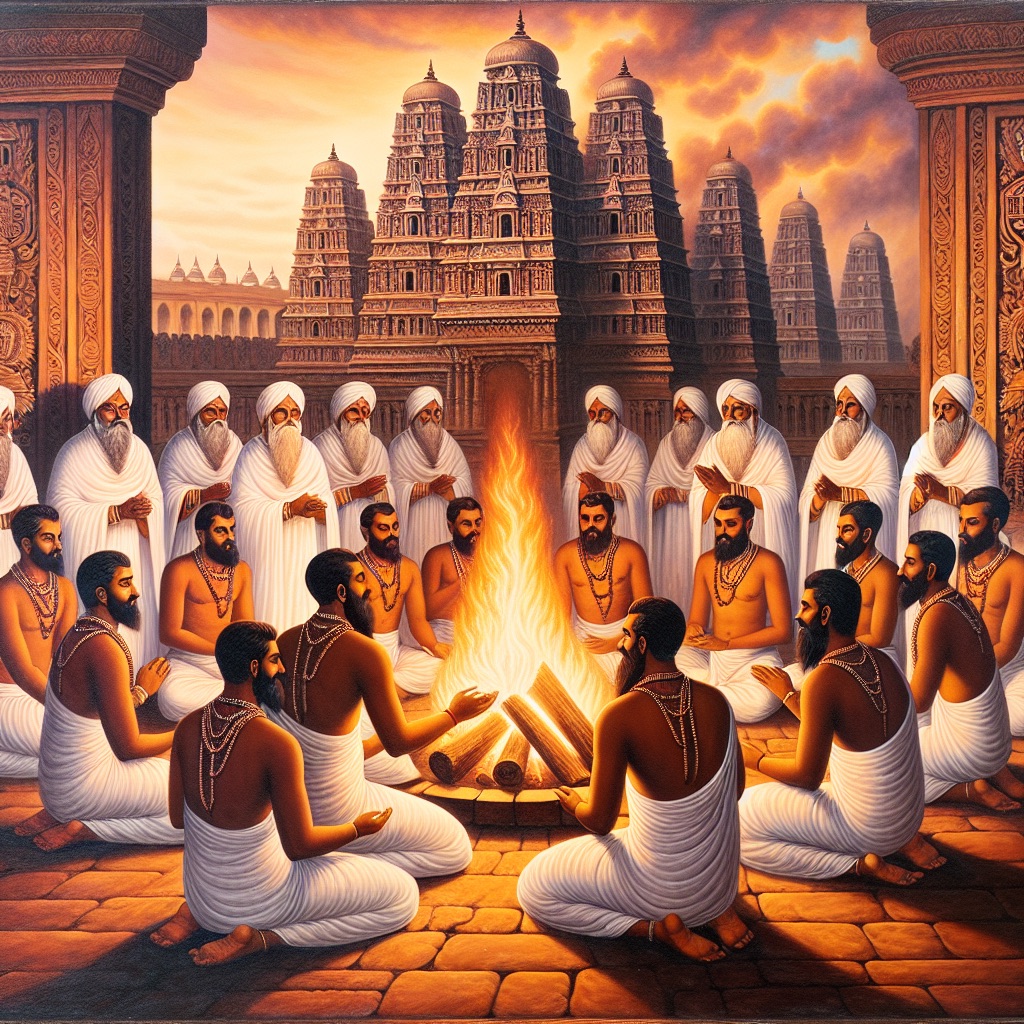1.4.7
This (universe) was then undifferentiated. It differentiated only into name and form—it was called such and such, and was of such and such form. So to this day it is differentiated only into name and form—it is called such and such, and is of such and such form. This Self has entered into these bodies up to the tip of the nails—as a razor may be put in its case, or as fire, which sustains the world, may be in its source. People do not see It, for (viewed in Its aspects) It is incomplete. When It does the function of living, It is called the vital force; when It speaks, the organ of speech; when It sees, the eye; when It hears, the ear; and when It thinks, the mind. These are merely Its names according to functions. He who meditates upon each of this totality of aspects does not know, for It is incomplete, (being divided) from this totality by possessing a single characteristic. The Self alone is to be meditated upon, for all these are unified in It. Of all these, this Self alone should be realised, for one knows all these through It, just as one may get (an animal) through its footprints. He who knows It as such obtains fame and association (with his relatives).
-
तद्धेदं
taddhedaṃ —
-
तर्ह्यव्याकृतमासीत्
tarhyavyākṛtamāsīt —
-
तन्नामरूपाभ्यामेव
tannāmarūpābhyāmeva —
-
व्याक्रियत
vyākriyata —
-
असौनामायमिदंरूप
asaunāmāyamidaṃrūpa —
-
इति
iti —
-
तदिदमप्येतर्हि
tadidamapyetarhi —
-
नामरूपाभ्यामेव
nāmarūpābhyāmeva —
-
व्याक्रियते
vyākriyate —
-
असौनामायमिदंरूप
asaunāmāyamidaṃrūpa —
-
इति
iti —
-
स
sa —
-
एष
eṣa —
-
इह
iha —
-
प्रविष्ट
praviṣṭa —
-
आ
ā —
-
नखाग्रेभ्यः
nakhāgrebhyaḥ —
-
यथा
yathā —
-
क्षुरः
kṣuraḥ —
-
क्षुरधानेऽवहितः
kṣuradhāne'vahitaḥ —
-
स्यात्
syāt —
-
विश्वम्भरो
viśvambharo —
-
वा
vā —
-
विश्वम्भरकुलाये
viśvambharakulāye —
-
तं
taṃ —
-
न
na —
-
पश्यन्ति
paśyanti —
-
अकृत्स्नो
akṛtsno —
-
हि
hi —
-
सः
saḥ —
-
प्राणन्नेव
prāṇanneva —
-
प्राणो
prāṇo —
-
नाम
nāma —
-
भवति
bhavati —
-
वदन्
vadan —
-
वाक्
vāk —
-
पश्यंश्चक्षुः
paśyaṃścakṣuḥ —
-
शृण्वन्
śṛṇvan —
-
श्रोत्रम्
śrotram —
-
मन्वानो
manvāno —
-
मनः
manaḥ —
-
तान्यस्यैतानि
tānyasyaitāni —
-
कर्मनामान्येव
karmanāmānyeva —
-
स
sa —
-
योऽत
yo'ta —
-
एकैकमुपास्ते
ekaikamupāste —
-
न
na —
-
स
sa —
-
वेद
veda —
-
अकृत्स्नो
akṛtsno —
-
ह्येषोऽत
hyeṣo'ta —
-
एकैकेन
ekaikena —
-
भवति
bhavati —
-
आत्मेत्येवोपासीत
ātmetyevopāsīta —
-
अत्र
atra —
-
ह्येते
hyete —
-
सर्व
sarva —
-
एकम्
ekam —
-
भवन्ति
bhavanti —
-
तदेतत्पदनीयमस्य
tadetatpadanīyamasya —
-
सर्वस्य
sarvasya —
-
यदयमात्मा
yadayamātmā —
-
अनेन
anena —
-
ह्येतत्सर्वं
hyetatsarvaṃ —
-
वेद
veda —
-
यथा
yathā —
-
ह
ha —
-
वै
vai —
-
पदेनानुविन्देदेवम्
padenānuvindedevam —
-
कीर्तिं
kīrtiṃ —
-
श्लोकं
ślokaṃ —
-
विन्दते
vindate —
-
य
ya —
-
एवं
evaṃ —
-
वेद
veda —

